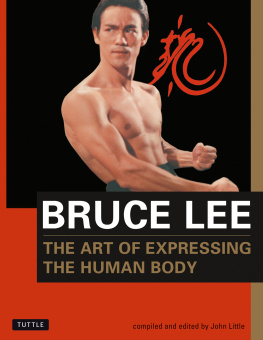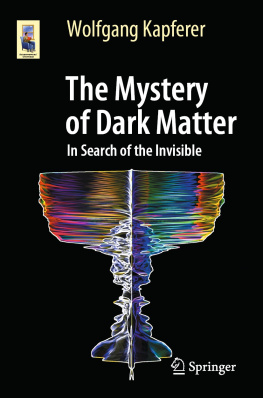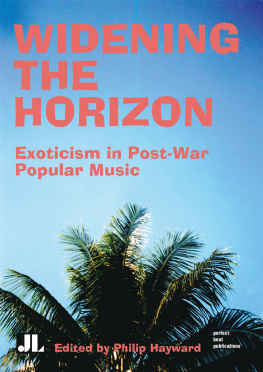First published in 2016 by
Berghahn Books
www.berghahnbooks.com
2016 Berghahn Books
Cover: Ember child, counter-exoticizing. Parara Puru, River Chagres, Panama. Photograph Dimitrios Theodossopoulos
All rights reserved.
Except for the quotation of short passages for the purposes of criticism and review, no part of this book may be reproduced in any form or by any means, electronic or mechanical, including photocopying, recording, or any information storage and retrieval system now known or to be invented, without written permission of the publisher.
Library of Congress Cataloging-in-Publication Data
Names: Kapferer, Bruce, editor. | Theodossopoulos, Dimitrios, editor.
Title: Against exoticism : toward the transcendence of relativism and universalism in anthropology / edited by Bruce Kapferer and Dimitrios Theodossopoulos.
Description: New York : Berghahn Books, 2016. | Includes index.
Identifiers: LCCN 2016044417 (print) | LCCN 2016047698 (ebook) |
ISBN 9781785333705 (pbk. : alk. paper) | ISBN 9781785333712 (ebook)
Subjects: LCSH: Cultural relativismCase studies. | EthnologyCase studies.
Classification: LCC GN345.5.A43 2016 (print) | LCC GN345.5 (ebook) | DDC 305.8dc23
LC record available at https://lccn.loc.gov/2016044417
British Library Cataloguing in Publication Data
A catalogue record for this book is available from the British Library.
ISBN 978-1-78533-370-5 (paperback)
ISBN 978-1-78533-371-2 (ebook)
INTRODUCTION
Against Exoticism
Bruce Kapferer and Dimitrios Theodossopoulos
The exotic, in its countless connotations, stirs our imagination. Marvelous and mysterious, dangerous, deceptive, or corrupt, the exotic is an inherently relational term that presupposes an awareness of Otherness. Etymologically, it is rooted in externality, derived from the Greek adverb xo (outside) and adjective exotiks (from the outside). Seen as what comes from the outsidethe strange, the outlandish, the unexpectedthe exotic predicates evaluations, metaphors, and categories of knowledge (Fernandez 1986; Lvi-Strauss 1962).
For many, anthropology as an idea and as an academic discipline begins in the encounter with the exotic. The exotic here is conceived as what lies outside ordinary experience, a meaning rooted in the etymology of the term, which projects a view of exteriority. This association of exteriority provides the term with broad meaning and guides much of our discussion here. There are some additional, value-laden connotations linked with the exotic. Barbarism, for example, indicating forms of life at the edge of civilization (as defined by the ancient Greeks and the historian Herodotus, who is sometimes described as an early anthropologist), or the savage slot, a term introduced by Michel-Rolph Trouillots (2003) critique of the anthropological domain in the context of colonialism and the neo-imperialism of globalization. Such negative associations darken the anthropological encounter with the exotic. They reproduce a pervasive dualism between the Self and the Other, in which ethnocentric values provide the measure for evaluating difference. Much of the negativity that forms around the idea and imagination of the exotic in anthropology is contained in the charge of its Orientalism.
The overall critique of Orientalism is tied to anthropologys beginnings as a discipline that focused on the subject peoples brought within the net of imperial expansion. The exotic Other was defined and described in relation to the non-exotic ideal of the Western metropolitan Self. In this, early anthropology was thoroughly participant in a colonizing, civilizing discourse whereby an interest in the expansion of knowledge concerning the exotic Other was linked to interests of political control. In this respect, Enlightenment reason was a legitimating ideology in excess of any justification in science. This involved an unscientific version of evolutionism based on an ethnocentric conception of progress and a hierarchization of cultural knowledge and practice. Max Webers all-embracing global comparative scheme that opposed Western Protestant-influenced rationality to that of China is one major example. The exacerbation of this orientation in anthropology, as Clifford Geertz (1984) points out, often enhanced its value in an intellectual merchandizing of the exotic, threatening to elaborate preexisting stereotypes of a racist nature. Anthropology, of course, was far from alone in such orientalizing, simply one of the more egregious examples of a self-admiring Eurocentrism that underpinned much, if not all, academic disciplines at the time of their establishment. This is not to excuse the discipline but to suggest that the matter of orientalizing exoticism is more profound than the charge of Orientalism and associated critiques allow.
By and large, late-twentieth-century anthropology attempted to turn away from the exotic. It aspired to expunge its scandal by following one or more redemptive approachesfor example, by (a) renouncing earlier interests to do with the non-modern (understood as the chief domain of what might be termed the anthropological exotic), (b) modernizing the discipline by focusing on more contemporary issues (see MacClancy 2002), or (c) insisting on universalizing theories shorn of problematic evolutionist and racist assumptions. Such reaction is frequently more cosmetic than anything elseas, for example, the excision of the concept of tribe from the anthropological lexicon. Thus, more deep-seated problems connected with the Eurocentricitynot just of anthropological thought but also of the modes of thinking and theoretical reflection in the humanities and sciences as a wholecan contribute to the risk and persistence of exoticism or Orientalism, despite an intention otherwise.
The dualism of much Euro-centered thought, and sometimes a restricted view of rationality and the nature of reason, is a factor in the creation of an exoticism of understanding, for want of a better expression. We cannot find a more pervasive example than the social-evolutionist, linear view that conceives human reason as progressive, evolving from unreason to reason with Western thought at the higher end. Such issues have long been at the center of methodological debate in anthropology and are tied to an aim to overcome exoticism and in fact to de-exoticize understandings of difference. In this objective anthropologists have anticipated the critique of Orientalism and, furthermore, havein their own methodological angstrevealed the dangers of exoticism even in perspectives that would expressly eschew it. We address aspects of this in the following discussion, in which we will sustain the importance of the concept of the exotic in anthropology, although definitely not exoticism.














